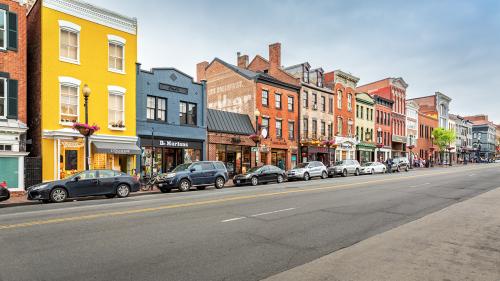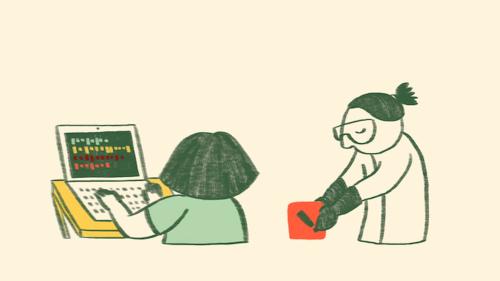Election results delayed in Zimbabwe
On Thursday, Zimbabwe’s election commission announced results from Monday’s elections for the National Assembly and presidency. President Emmerson Mnangagwa emerged victorious from a presidential field of 23 candidates garnering 2.46 million votes (50.8 percent) compared to 2.15 million votes for the main opposition leader Nelson Chamisa. Gaining more than 50 percent of the vote, President Mnangagwa avoided a second round runoff election. The incumbent ZANU-PF party also retained its two-thirds majority in the National Assembly (145 out of 210 seats) while the largest opposition party, the MDC Alliance won 63 out of the assembly’s 210 seats. So far, the MDC Alliance has rejected the results of the presidential vote, with senior party member Morgan Komichi saying the results were “predetermined figures that were made some months before”. On Friday, Reuters reported that riot police had chased away journalists in Harare waiting for a briefing from Nelson Chamisa, the opposition leader.
Already on Wednesday, protests had broken out in Harare after the election commission announced the National Assembly results where the ruling ZANU-PF party won the most seats. Protesters accused the ruling ZANU-PF party of rigging the elections. Six people were killed in the protests as security forces used live ammunition and tear gas to disperse the protesters. Following Wednesday’s violence, soldiers forced shops in downtown Harare to close on Thursday and kept people off the streets. According to Reuters, local police also sealed off the headquarters of the opposition MDC party on Thursday
In contrast, the voting process on Monday was largely peaceful with incidents of voters being intimidated or turned away limited to a small number of polling stations according to the Zimbabwe Election Support Network. Election observers from the United States and the European Union monitored the voting in Zimbabwe and reported both improvements in the electoral process and ongoing abuses in the lead-up to the election. The European Union commission highlighted an “improved political climate, inclusive participation rights, and a peaceful vote” although it noted an unequal playing field. Two U.S. based groups, the International Republican Institute and the National Democratic Institute highlighted “numerous incidents of food and agricultural assistance and extreme media bias” in favor of President Mnangagwa.
Mali conducts presidential elections
Last Sunday, Mali conducted the first round of presidential elections. Malian President Ibrahim Boubacar Keïta is seeking a second term. His main opponent is former finance minister Soumaila Cissé in a field with 23 candidates. Results released on Thursday showed that President Keïta won 41.4 percent of the vote while his closest rival Soumaila Cissé, won 17.8 percent of the vote. President Keïta and Soumaila Cissé will face off in a second round runoff election as neither candidate crossed the 50 percent threshold required for outright victory. A third candidate also claimed to have gathered enough votes to participate in the run-off elections. A spokesperson from the Democratic Alliance for State claims that the party candidate, Aliou Diallo, have come in second in Sunday’s vote.
Prior to the elections, tensions were running high as members of the opposition questioned the validity of the electoral register and the security situation in central and Northern Mali has deteriorated over the past few months. Moreover, experts warned that the fear of violence could drive voters away from the poll. According to the Observer, a Ugandan newspaper, the Sunday elections saw a few violent incidents including reports of armed group stopping elections supervisors from entering polling stations and ballot boxes being burned. In 716 polling station—3 percent of the country’s total— no ballots were cast as the fear of violence compelled the stations to remain closed. These stations are located in the central and northern regions, areas troubled by Islamic extremism and ethnic unrest. Despite these incidents, voting ran smoothly in the rest of the country.
In other political news, last week, Comorans voted in favor of constitutional reforms that will allow current president Azali Assoumani to seek two additional terms. The change was approved by 92.74 of voters, as the opposition boycotted the vote. Moreover, the reform ends the system, which rotates the presidency among candidates from the three main Islands every five years. The agreement was in place to promote power sharing and stability. However, President Assoumani argued that it hindered the ability of the government to set long-term priorities. The opposition has accused the president of flouting the constitution and called the referendum illegal.
South Africa: Land expropriation without compensation and threat of power cuts
In a televised address on Tuesday, President Cyril Ramaphosa of South Africa announced that the ruling African National Congress (ANC) would push ahead to amend the constitution to allow for the expropriation of land without compensation. The push for the constitutional amendment comes after the ANC announced in May that it would “test the argument” that current law allowed expropriation without compensation and to avoid changing the constitution. However, President Ramaphosa noted the reason to amend the constitution is that, “people want the constitution to be more explicit about expropriation of land without compensation as demonstrated in the public hearings.” Some investors fear that amending the constitution signals a shift to a radical land-reform strategy, prompting the rand to weaken (0.8 percent weaker after the announcement). Ramaphosa has repeatedly claimed any changes will not compromise food security or economic growth.
In addition, on Wednesday evening South Africa’s struggling state-owned power utility Eskom announced that there is a high chance of more electricity cuts after workers demanding higher wages protested for a third day. This threat of power cuts underscores the vulnerability of the company, which supplies 90 percent of South Africa’s power, at a time when President Ramaphosa has made reforming cash-strapped state firms a priority.
The Brookings Institution is committed to quality, independence, and impact.
We are supported by a diverse array of funders. In line with our values and policies, each Brookings publication represents the sole views of its author(s).





Commentary
Africa in the news: Zimbabwe election results, South Africa updates, and Mali elections
August 4, 2018